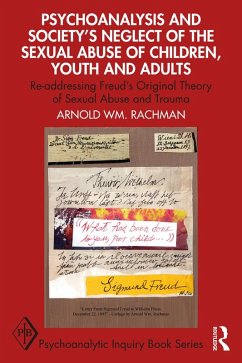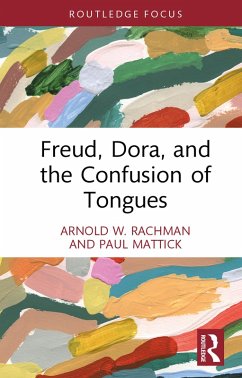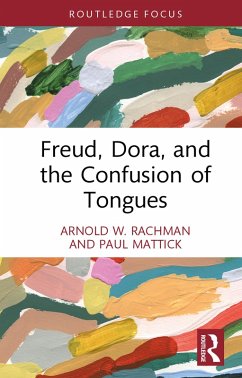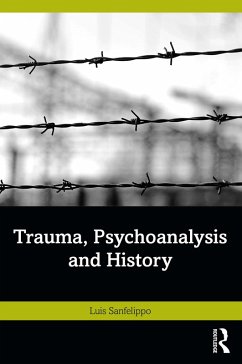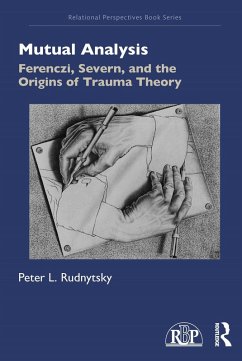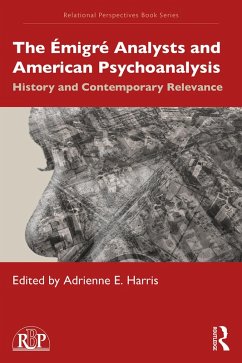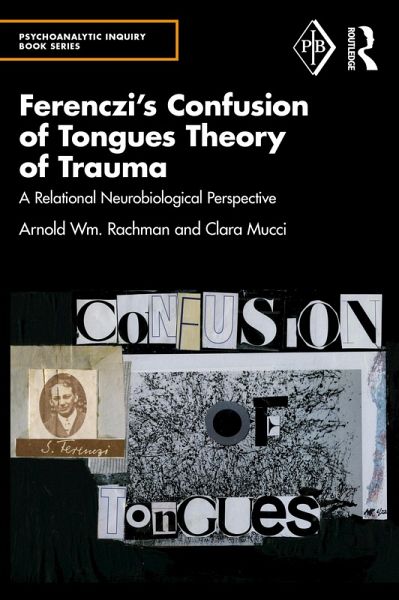
Ferenczi's Confusion of Tongues Theory of Trauma (eBook, ePUB)
A Relational Neurobiological Perspective
Versandkostenfrei!
Sofort per Download lieferbar
31,95 €
inkl. MwSt.
Weitere Ausgaben:

PAYBACK Punkte
16 °P sammeln!
Arnold Wm. Rachman and Clara Mucci provide a detailed examination of the significance of Sándor Ferenczi's paradigm shifting theory of trauma, the Confusion of Tongues, and confirm its relevance for the psychoanalytic theory and analysis of trauma today.As the first alternative to Freud's theory of the Oedipal complex, Ferenczi's Confusion of Tongues theory expanded the theoretical and clinical boundaries of psychoanalysis to establish that psychological trauma as a result of childhood sexual abuse and trauma experiences are a significant contributing factor to the development of psychologica...
Arnold Wm. Rachman and Clara Mucci provide a detailed examination of the significance of Sándor Ferenczi's paradigm shifting theory of trauma, the Confusion of Tongues, and confirm its relevance for the psychoanalytic theory and analysis of trauma today.
As the first alternative to Freud's theory of the Oedipal complex, Ferenczi's Confusion of Tongues theory expanded the theoretical and clinical boundaries of psychoanalysis to establish that psychological trauma as a result of childhood sexual abuse and trauma experiences are a significant contributing factor to the development of psychological disorders. The authors address the lack of attention paid to the significance of sexual abuse trauma to understanding psychological ill health in psychoanalysis, and integrate the latest research on neurobiology to demonstrate how Ferenczi's theory is meaningful to understanding many aspects of human behavior today.
This work will be formative to psychoanalysts and psychotherapists both in training and in practice and provide renewed insight into the treatment of childhood sexual abuse and psychological trauma.
As the first alternative to Freud's theory of the Oedipal complex, Ferenczi's Confusion of Tongues theory expanded the theoretical and clinical boundaries of psychoanalysis to establish that psychological trauma as a result of childhood sexual abuse and trauma experiences are a significant contributing factor to the development of psychological disorders. The authors address the lack of attention paid to the significance of sexual abuse trauma to understanding psychological ill health in psychoanalysis, and integrate the latest research on neurobiology to demonstrate how Ferenczi's theory is meaningful to understanding many aspects of human behavior today.
This work will be formative to psychoanalysts and psychotherapists both in training and in practice and provide renewed insight into the treatment of childhood sexual abuse and psychological trauma.
Dieser Download kann aus rechtlichen Gründen nur mit Rechnungsadresse in A, B, BG, CY, CZ, D, DK, EW, E, FIN, F, GR, HR, H, IRL, I, LT, L, LR, M, NL, PL, P, R, S, SLO, SK ausgeliefert werden.






